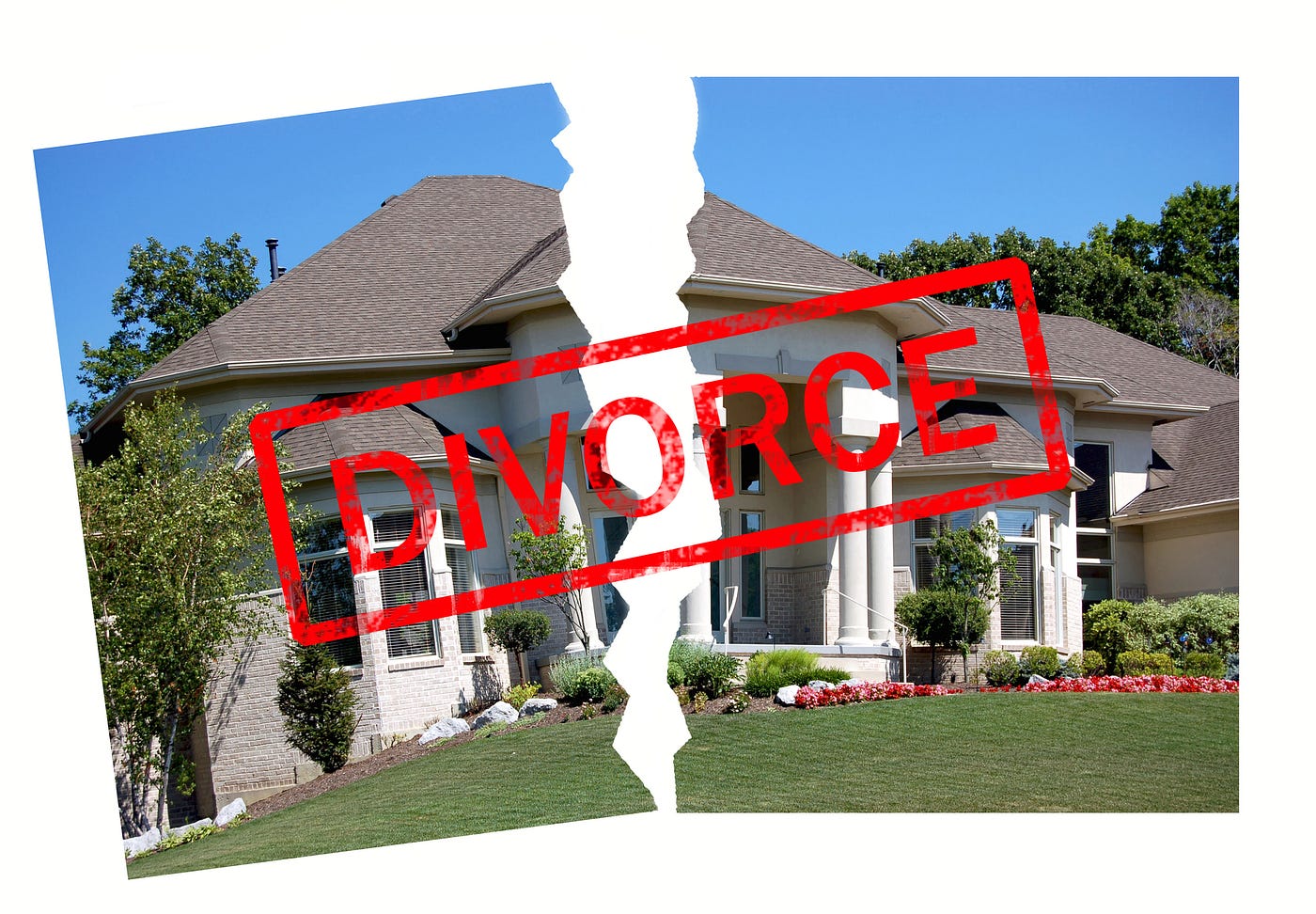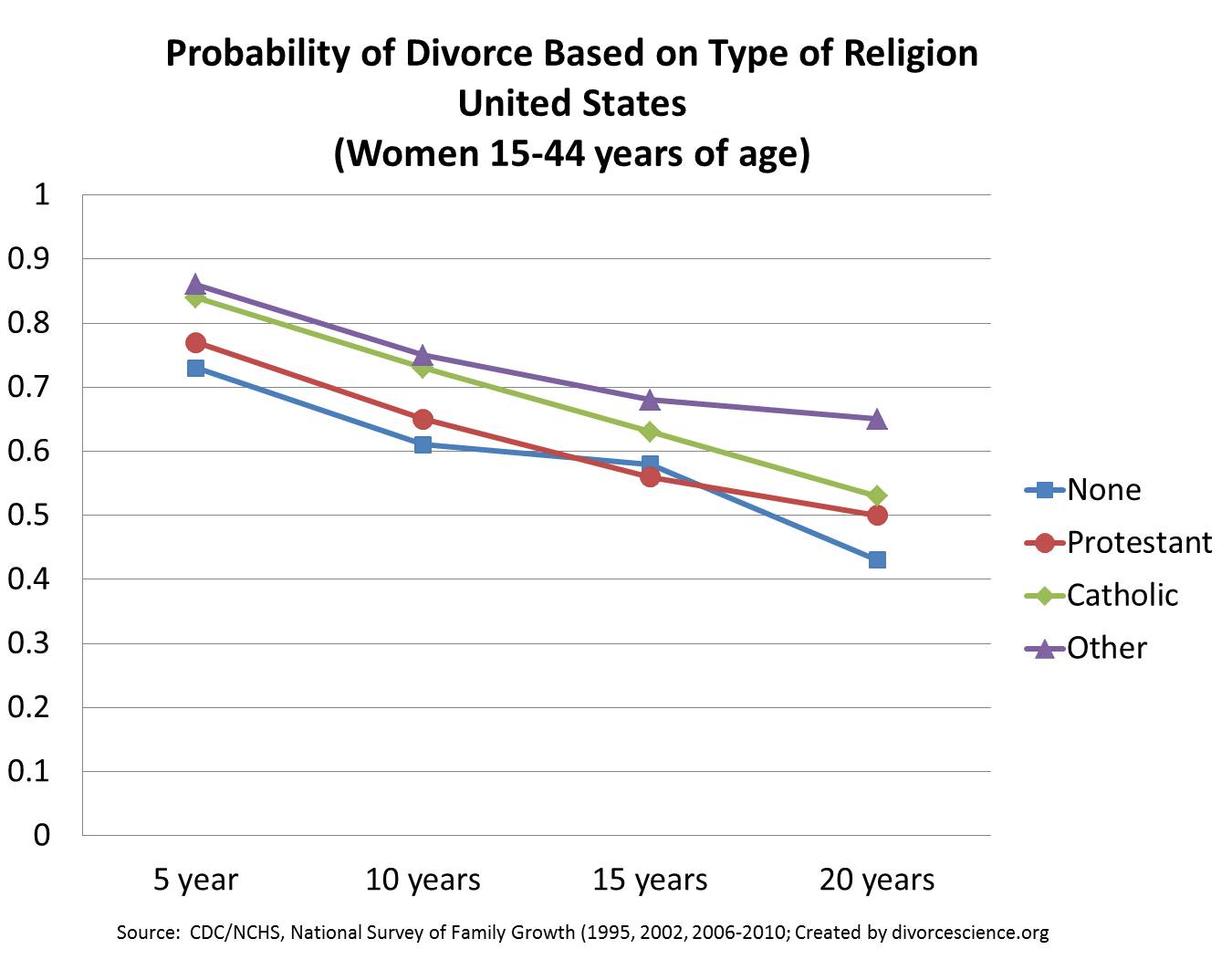Divorce In Different States - Seventeen US states are considered "no-fault states" for divorce. These no-fault states include Wisconsin, Oregon, Washington, Nevada, Nebraska, Montana, Missouri, Minnesota, Michigan, Kentucky, Kansas, Iowa, Indiana, Hawaii, Florida, Colorado and California.
In no-fault states, no fault is required to file for divorce. In other words, to request a divorce, the spouse who is not at fault does not have to prove that the other spouse did something wrong. No fault is thrown to show the motivation for the divorce. Instead, many no-fault divorces are settled on grounds such as "irreconcilable differences."
Divorce In Different States

Every state in the US allows no-fault divorce; however, the requirements for a no-fault divorce can vary by state. Some states also allow "fault situations" in divorce, meaning the divorce process can specify fault as grounds for divorce.
How Much Does The Average Wedding Cost In Each State?
State laws regarding no-fault divorce can vary from state to state. For example, even in no-fault cases, it can affect the outcome of a divorce. In Florida, adultery can affect a divorce court's custody order. For example, if one parent proves that the other parent had an affair, this information may influence the court's decision. The judge can decide to limit the custody or visitation rights of the spouses.
Divorce laws vary by state. In general, it's a good idea to consult with a divorce attorney about the specifics of fault or no-fault divorce in your state.
In general, no. However, in a limited number of cases, it is still possible to file for a no-fault divorce. For example, a person seeking a divorce from a mentally disabled spouse in Colorado may decide to initiate a divorce proceeding on these grounds, but the mental state of the spouse in question must be verified by a medical professional or the spouse must live in a mental institution. organization
33 US states offer no-fault divorces to people who are divorcing, but these states can also be considered "fault states" because people can file for divorce the traditional way. Fault usually includes grounds for divorce, including adultery, abandonment, infidelity, incarceration, or cruelty. Cruelty, or more specifically, inflicting unnecessary pain on a spouse, whether emotional or physical, is often the most common reason for divorce based on fault. In a no-fault situation, one or both spouses may be at fault for a no-fault divorce.
Image 4 Of Elizabeth Cady Stanton Papers: Speeches And Writings, 1848 1902; Articles; 1902; 13 Oct., \
States with no-fault divorce include Alabama, Alaska, Arizona, Arkansas, Connecticut, Delaware, Georgia, Maryland, New Jersey, New York, North Carolina, South Carolina, Vermont, and Virginia. The District of Columbia also offers no-fault divorce.
Many states also offer a third option, which is a mix of fault and no-fault divorce. Many no-fault and no-fault states offer this option, which is divorce based on fault. This alternative to no-fault, no-fault divorce requires the spouses seeking a legal divorce to live separately or for a certain period of time.
A: A no-fault divorce, as its name suggests, does not require the fault of either party as grounds for divorce. A no-fault divorce requires an allegation or complaint by one of the parties as grounds for the divorce.

Answer: Community property states are states where money and property earned by both spouses, including debts, are considered community/own property.
China's Divorce Rate Is Down, But So Are Marriages
Answer: There are only 7 states that include community property. These are Arizona, California, Idaho, Nevada, New Mexico, Texas, Louisiana, Wisconsin and Washington.
A: Marital property refers to property or assets acquired during the marriage. It is all property that belongs equally to both spouses, including debt. We use cookies to provide the best experience and help improve our website. See Privacy Statement
This family profile has been updated with new information. Click here to access the latest version, FP-20-25.
Source: 1970-2000 NCFMR study, National Center for Health Statistics; 2008-2018, US Census Bureau, American Community Survey, 1-year estimate. * Divorce rate = [(number of women divorced in the last 12 months) / (number of women divorced in the last 12 months + number of women currently married)]*1000
Evolution Of Divorce In The U
Source: US Census Bureau NCFMR analysis, American Community Survey, 1-year estimate in 2018. *MOE = margin of error. MOE is a measure of sampling error and represents the maximum range by which the measure will differ from the true proportion. The MOE is calculated at the 90% confidence level for the derived estimates.
Figure 3. State-adjusted divorce rate per 1,000 married women age 15 and older, by quartile, 2018.
This project is supported by Bowling Green State University. From 2007 to 2013, the US Department of Health and Human Services, Office of the Assistant Secretary for Planning and Evaluation also provided support. The views and conclusions expressed herein are solely those of the authors and should not be construed as reflecting the views or policies of any state or federal government agency. It is surprising that people ask if they can file for divorce. In Nevada if he or his spouse lives in another state. Does the state of Nevada have jurisdiction over a divorce case? Where is the best place to file? What procedures should be followed? Read on to learn about Nevada divorce jurisdiction and law from our experienced Las Vegas divorce attorneys.

Divorce can be filed in any jurisdiction where one of the parties lives, regardless of where the other spouse lives. Different states have different residency requirements, so it's important to understand each state's laws when deciding where to file for divorce. It is important to note that these laws change frequently, and what was acceptable for residency requirements a few years ago may not be valid now. That's why it's important to consult with a divorce attorney who keeps you informed of all changes.
Pregnancy Rights: Can You Get Divorced While Pregnant?
Nevada only has a six week residency requirement. In order for a Las Vegas family court to have jurisdiction over a divorce, one of the parties must have lived in the state continuously for at least six weeks before filing for divorce. Nevada's residency requirements are among the shortest in the nation. So a lot of people think, okay, I'll go to Las Vegas for six weeks and then I can present there. The reality may be more complicated. At a minimum, a Las Vegas resident will need a resident witness and submit an affidavit of residency in the case of a divorce to prove residency. The spouse who resides and files in Nevada must give the out-of-state spouse adequate notice of the divorce proceedings. And both spouses must follow the same court procedures as any other divorce case.
Divorce petition One of the advantages of filing first is that you can choose the jurisdiction. In general, it is advisable to choose the place of residence. This makes work easier and more convenient for you, giving you the "home advantage".
However, if most of the assets, evidence, and witnesses are located elsewhere (for example, if you and your spouse have lived in another state for ten years and all of your assets and family are located there), another jurisdiction may be more appropriate. suitable The court, at your spouse's request, may decide that, although it technically has jurisdiction to hear the case, another jurisdiction is a better forum for the dispute. It is especially likely that the courts will transfer the case to the jurisdiction where the joint children live.
Talk to your Las Vegas divorce attorney about your options and learn how to put yourself in the best possible position before your divorce. Our experienced divorce attorneys are ready to guide you through every aspect of your divorce case. We will review the individual facts of your case, advise you on the best forum for your divorce, determine jurisdiction and effect service of process. You will have the benefit of our experienced attorney at every stage of your divorce case. Divorce attorneys Jennifer W. Abrams and Vincent Mayo offer free phone consultations. Call 702-222-4021 to speak with one of them about your important divorce questions.
Where Do I Get A Divorce ? Family Lawyers Mackay
Communication with our Las Vegas divorce law firm does not create an attorney-client relationship. For your protection, please do not enter any confidential details of your case at this time. After ensuring that there is no conflict of interest, we will discuss confidential matters. The steady decline in divorce rates over the past two decades suggests that marriages are more stable today. Meanwhile, a record number of people in the United States have never been married, according to a Pew Research Center analysis of US Census data. In 2019, 33% of Americans aged 25 to 54 had never been married. In 1970, for people aged 25 to 50, the share was only 9%.
In addition, research shows that the marriage rate
Common law divorce states, co parenting in different states, divorce in separate states, divorce records united states, divorce in united states, divorce different states, minimum wage in different states, sales tax in different states, divorce in the united states, joint custody in different states, no fault divorce states, taxes in different states
0 Comments